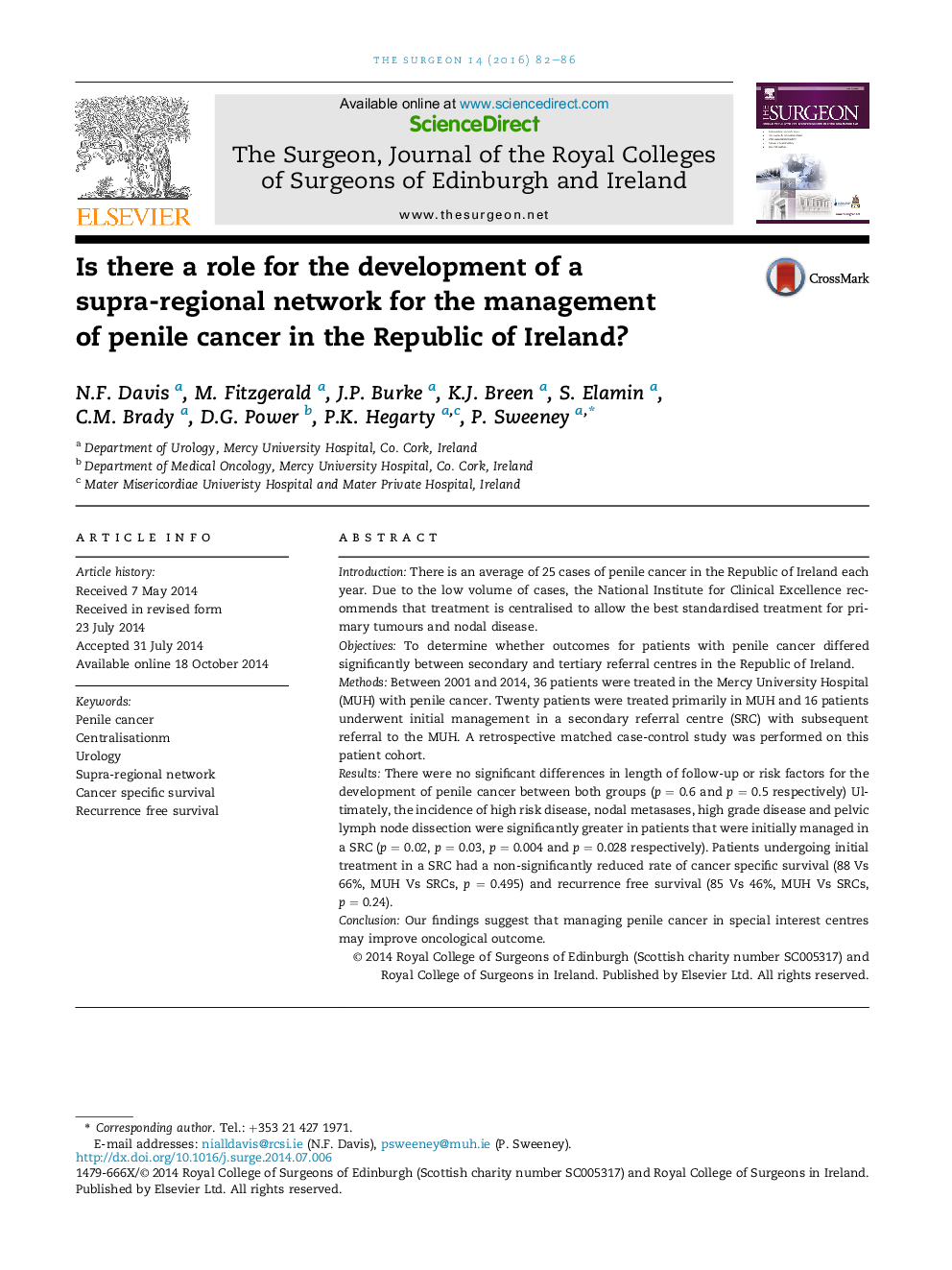| Article ID | Journal | Published Year | Pages | File Type |
|---|---|---|---|---|
| 3178450 | The Surgeon | 2016 | 5 Pages |
IntroductionThere is an average of 25 cases of penile cancer in the Republic of Ireland each year. Due to the low volume of cases, the National Institute for Clinical Excellence recommends that treatment is centralised to allow the best standardised treatment for primary tumours and nodal disease.ObjectivesTo determine whether outcomes for patients with penile cancer differed significantly between secondary and tertiary referral centres in the Republic of Ireland.MethodsBetween 2001 and 2014, 36 patients were treated in the Mercy University Hospital (MUH) with penile cancer. Twenty patients were treated primarily in MUH and 16 patients underwent initial management in a secondary referral centre (SRC) with subsequent referral to the MUH. A retrospective matched case-control study was performed on this patient cohort.ResultsThere were no significant differences in length of follow-up or risk factors for the development of penile cancer between both groups (p = 0.6 and p = 0.5 respectively) Ultimately, the incidence of high risk disease, nodal metasases, high grade disease and pelvic lymph node dissection were significantly greater in patients that were initially managed in a SRC (p = 0.02, p = 0.03, p = 0.004 and p = 0.028 respectively). Patients undergoing initial treatment in a SRC had a non-significantly reduced rate of cancer specific survival (88 Vs 66%, MUH Vs SRCs, p = 0.495) and recurrence free survival (85 Vs 46%, MUH Vs SRCs, p = 0.24).ConclusionOur findings suggest that managing penile cancer in special interest centres may improve oncological outcome.
